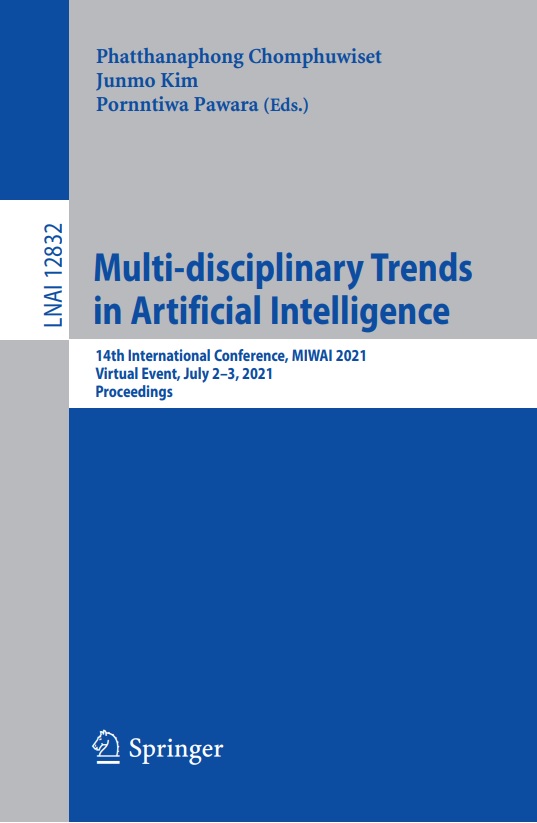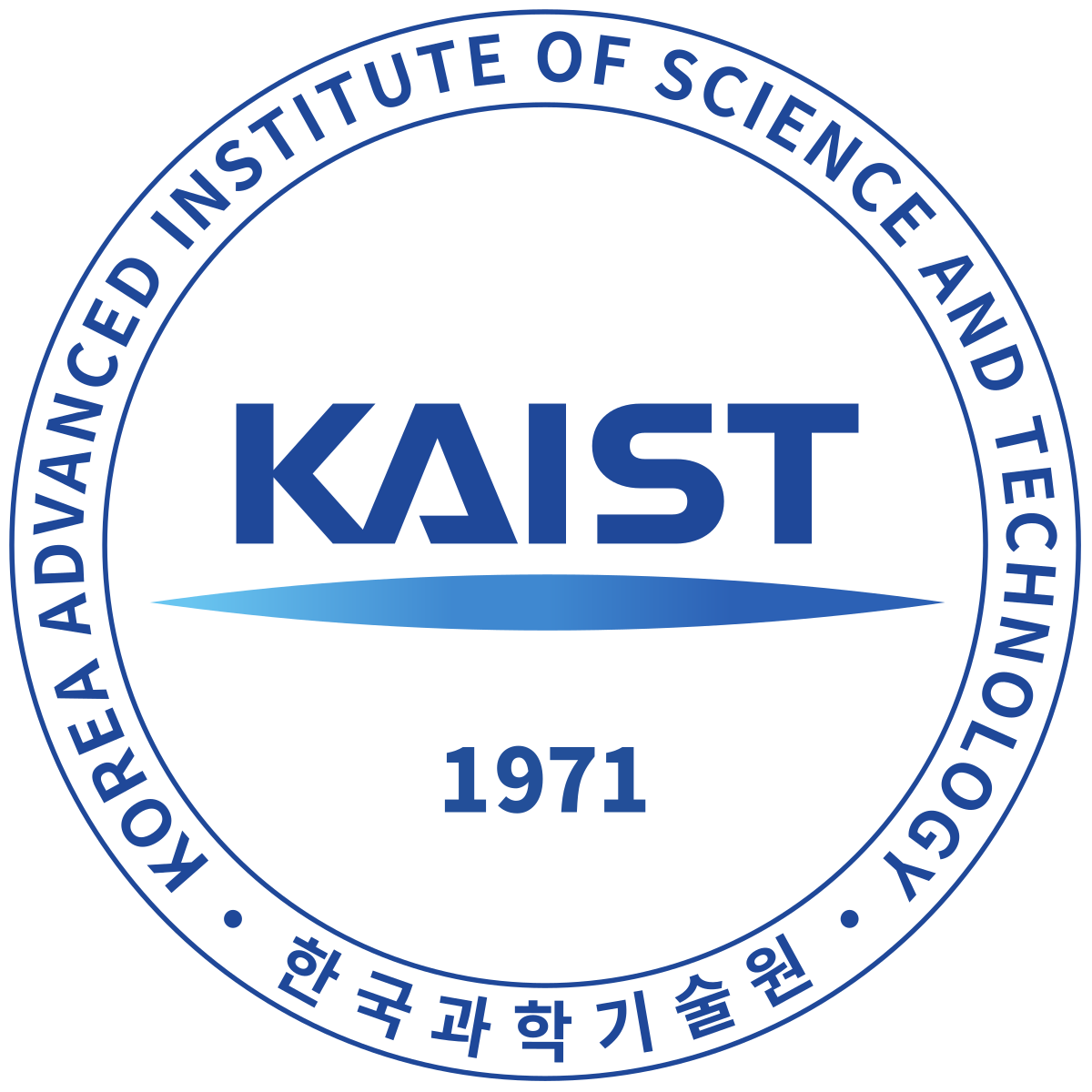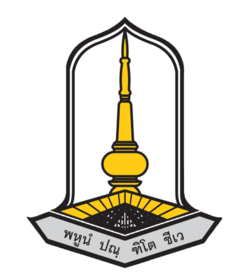KEYNOTE SPEAKER
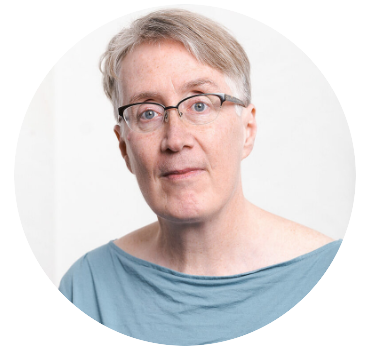
Prof. Joanna Bryson
Professor of Ethics and Technology at the Hertie School.
Her research focuses on the impact of technology on human cooperation, and AI/ICT governance. From 2002-19 she was on the Computer Science faculty at the University of Bath. She has also been affiliated with the Department of Psychology at Harvard University, the Department of Anthropology at the University of Oxford, the School of Social Sciences at the University of Mannheim, and the Princeton Center for Information Technology Policy. During her PhD she observed the confusion generated by anthropomorphised AI, leading to her first AI ethics publication “Just Another Artifact” in 1998. In 2010, she co-authored the first national-level AI ethics policy, the UK's Principles of Robotics.
Bias, trust, and doing good: The impacts of digital technology on human ethics, and vice versa
Abstract: Is artificial intelligence compromising or complementing human ethics? In this talk I focus on a third option: that as we introduce digital technologies into our lives, we are changing our society in ways that exposes the nature and origins of our own social behaviour. This gives us an opportunity to know our selves better, and to behave well if we choose. I begin the talk by introducing the concept of public goods, then show how these relate to sustainability, trust, bias, and political polarisation. I conclude speaking about remedies including how we as individual nations and collections of nations might regulate these technologies to improve our future lives.
ABOUT MIWAI
Artificial Intelligence (AI) research has broad applications in real world problems. Examples include control, planning and scheduling, pattern recognition, knowledge mining, software applications, strategy games and others. The ever-evolving needs in society and business both on a local and on a global scale demanding better technologies for solving more and more complex problems. Such needs can be found in all industrial sectors and in any part of the world.
This conference aims to be a meeting place where excellence in AI research meets the needs for solving dynamic and complex problems in the real world. The academic researchers, developers, and industrial practitioners will have extensive opportunities to present their original work, technological advances and practical problems. Participants can learn from each other and exchange their experiences in order to fine tune their activities in order to help each other better. The main purposes of the MIWAI series of conference are:
- To provide a meeting place for AI researchers and practitioners.
- To inform research students about cutting-edge AI research via the presence of outstanding international invited speakers.
- To raise the standards of practice of AI research by providing researchers and students with feedback from an internationally-renowned program committee.
CALL FOR PAPER
The 14th Multi-disciplinary International Conference on Artificial Intelligence (MIWAI 2021) will be a virtual conference and held on July, 2-3 2021. The main objective of the conference is to present the latest research and results of scientists related to AI topics.
MIWAI 2021 provides opportunities for the delegates to exchange new ideas and establish future collaborations worldwide. This year the conference is organized by Mahasarakham University, with association of Korea Advanced Institute of Science and Technology (KAIST), Korea.
MIWAI aims to promote AI research in both theoretical and applied research addressing real-world applications. We encourage researchers to submit their unpublished papers in the following areas, but not limited to:
- Theoretical Foundation: Cognitive Science; Computational Philosophy; Game Theory; Graphical Models; Knowledge Representation and Reasoning; Logic; Fuzzy Logic; Multi-agent Systems; Neurosciences; Probabilistic Reasoning; Qualitative Reasoning; Uncertainty
- Cognitive Computing: Affective Computing; Computer Vision; Natural Language Processing; Self-aware Systems; Speech Recognition; Social Cognition
- Computational Intelligence: Artificial Intelligence; Deep Learning; Evolutionary Computing; Machine Learning; Pattern Recognition; Planning and Scheduling; Social Computing; Swarm Intelligence
- AI Applications: Ambient Intelligence; Big Data Analysis; Biometrics; Bioinformatics; Brain Machine Interface; Chatbots; Creative Computing; Decision Support Systems; E-commerce; Energy Management; Health Assessment; Industrial Applications of AI; Intelligent Information Systems; Knowledge Management; Telecommunications and Web Services; Security and Privacy Management; Surveillance; Spam Filtering; Software Engineering; Social Networking Security; Semantic Web; Robotics; Recommender Systems; Sport and Rehabilitation; Virtual Reality & Augmented Reality
CONFERENCE PROGRAM
This year MIWAI hosts the conference in a virtual format. The conference date is on July 2, 2021 and it runs two parallel sessions. The program of the sessions is as follows:
Welcome Speech Opening
click here to access to the conference|
TIME (Bangkok Time) |
TITLE |
|---|---|
|
02.50 PM - 03.00 PM |
Welcome Speech Opening
by Prof.Chang Yoo (The president of Artificial Intelligence Association in Korea) |
Keynote Session
hosted by Manasawee Kaenampornpan|
TIME (Bangkok Time) |
TITLE |
|---|---|
|
03.00 PM - 04.30 PM |
Bias, trust, and doing good: The impacts of digital technology on human ethics, and vice versa |
Deep learning and classification
Session chair: Pornntiwa Parawaclick here to access to the session
|
TIME (Bangkok Time) |
TITLES |
|---|---|
|
04.40 PM - 05.00 PM |
3D Point Cloud Upsampling and Colorization using GAN |
|
05.00 PM - 05.20 PM |
An Analytical Evaluation of a Deep Learning Model to Detect Network Intrusion |
|
05.20 PM - 05.40 PM |
A Comparative of A New Hybrid based on Neural Networks and SARIMA Models for Time Series Forecasting |
|
05.40 PM - 06.00 PM |
Feature Extraction Efficient for Face Verification Based on Residual Network Architecture |
|
06.00 PM - 06.20 PM |
Book Cover and Content Similarity Retrieval using Computer Vision and NLP Techniques |
|
06.20 PM - 06.40 PM |
Thai Handwritten Recognition on BEST2019 Datasets using Deep Learning Rapeeporn Chamchong, Umaporn Saisangchan, Pornntiwa Pawara |
|
06.40 PM - 07.00 PM |
Fast Classification Learning with Neural Networks and Conceptors for Speech Recognition and Car Driving Maneuvers |
|
07.00 PM - 07.20 PM |
Learning Behavioral Rules from Multi-Agent Simulations for Optimizing Hospital Processes |
Data mining applications and Agents
Session chair: Peter Scully|
TIME (Bangkok Time) |
TITLES |
|---|---|
|
04.40 PM - 05.00 PM |
Learning Robot Arm Controls using Augmented Random Search in Simulated Environments |
|
05.00 PM - 05.20 PM |
Cartpole Problem with PDL and GP using Multi-Objective Fitness Functions Differing in A Priori Knowledge |
|
05.20 PM - 05.40 PM |
An Open-World Novelty Generator for Authoring Reinforcement Learning environment of standardized toolkits |
|
05.40 PM - 06.00 PM |
Feature Group Importance for Automated Essay Scoring |
|
06.00 PM - 06.20 PM |
Acquiring Input Features from Stock Market Summaries: A NLG Perspective |
|
06.20 PM - 06.40 PM |
Designing An Algorithm for Scheduling Tasks for Multiagent Systems |
|
06.40 PM - 07.00 PM |
Application of Machine Learning Techniques to Predict Breast Cancer Survival |
|
07.00 PM - 07.20 PM |
Comparing of Multi-class Text Classification Methods for Automatic Ratings of Consumer Reviews |
Author Guideline
Authors of the accepted paper are required to present the work in the conference. The presentation time is 15 minutes, and plus 5 minnutes for question/answer. As a virtual conference, the authors are required to prerecord their video presentation and send the video to us. During the conference, the prerecorded video of each paper will be played according to the conference program and the authors of the paper are required to be available for the Q/A afterward.
To submit your video, we recommend you share the video and send us a downloadable link. All submitted prerecorded video will be made available to the conference participants during the conference. Please feel free to contact us if you have questions regarding the prerecorded video.
When preparing the video, please follow the following guideline:
- The duration of the video file: 15 minutes
- Videos are required to present a prominent view of the presentation slides, along with clear and audible audio of the spoken presentation. Optionally, videos may contain a shot of the presenter for increased engagement.
- File Format: MPEG-4 (.mp4) file (use the normal H.264 video and AAC audio codecs).
- Video Size: HD (1280 x 720 or other “720p” setting).
- Audio Quality: please double check your files before submitting to make sure the audio is clear and audible.
Please send a downloadable link of the videos to phatthanaphong.c@msu.ac.th.
SUBMISSION
REGULAR PAPERS
Both research and application papers are solicited. All submitted papers will be reviewed on the basis of technical quality, relevance, significance, and clarity. Each paper should have no more than twelve (12) pages in the Springer-Verlag LNCS style. The authors' names and institutions should not appear in the paper. Unpublished work of the authors should not be cited.
SHORT PAPERS
We still accept short papers for MIWAI 2021. They may present work in progress, providing an opportunity for sharing valuable ideas, eliciting useful feedback on early-stage work, and fostering discussions and collaborations among researchers interested in the broad area of artificial intelligence.
We encourage contributions presenting thought-provoking ideas and promising (preliminary) results in realizing them. We also encourage researchers and practitioners to submit reports on work in progress to discuss ongoing research, practical experience, challenges or issues related to artificial intelligence. Short papers should not exceed 8 pages in length and should not have been submitted for review or published elsewhere. The submission of SHORT papers must be made through the Easychair submission system until March 19, 2021.
SUBMISSION:
- To submit a paper please go to easychair
NO-SHOW POLICY
MIWAI strongly expects its submitting authors to adhere to the academic code of honor. In particular, this means that any paper that is eventually accepted to the technical program will be on the understanding that at least one co-author of the paper both registers *and attends* the conference to present the paper.
- At least one co-author for each accepted paper must *register* before the author registration deadline (April 9th, 2021) has passed. Failure to do so will result in removal of the paper from the printed and online proceedings.
- Authors who are registered but then find that they cannot attend due to exceptional circumstances beyond their control should:
- Notify the program chairs by email as soon as possible with a satisfactory explanation of these circumstances.
- Make every possible arrangement for another co-author to present the paper in their place. (In exceptional circumstances we may allow a presentation by video.)
- If a registered author fails to show at the conference without doing either of (a), (b) above then:
- The paper will be removed from the online proceedings.
- The registered author will be banned from having papers accepted to MIWAI for a period of 3 years.
- A formal letter of complaint will be written to the author's head of faculty.
COMMITTEES
STEERING COMMITTEE
■ Arun Agarwal, University of Hyderabad, India ■ Rajkumar Buyya, University of Melbourne, Australia ■ Patrick Doherty, University of Linkoping, Sweden ■ Rina Dechter, University of California, Irive, USA ■ Leon Van Der Torre, University of Luxembourg, Luxembourg ■ Peter Haddawy, Mahidol University, Thailand ■ Jérôme Lang, University Paris-Dauphine, France ■ James F. Peters, University of Manitoba, Canada ■ Somnuk Phon-Amnuaisuk, UTB, Brunei ■ Srinivasan Ramani, IIIT Bangalore, India ■ C Raghavendra Rao, University of Hyderabad, India
HONORARY ADVISORS
■ Sasitorn Kaewman, Mahasarakham University, Thailand
COVERNORS
■ Richard Booth, Cardiff University, UK ■ Chattrakul Sombattheera, Mahasarakham University, Thailand
GENERAL CHAIRS
■ Junmo Kim (KAIST), Korea ■ Dong Eui Chang (KAIST), Korea
PROGRAM CHAIRS
■ Heechul Jung, Kyungpook National University (KNU), Korea
■ Phatthanaphong Chomphuwiset, Mahasarakham University, Thailand
■ Pornntiwa Pawara, Mahasarakham University, Thailand
PROGRAM COMITTEE
■ Arun Agarwal, University of Hyderabad, India
■ Grigoris Antoniou, University of Huddersfield, UK
■ Adham Atyabi, University of Colorado Colorado Springs & Seattle Children's Research Institute, USA
■ Thien Wan Au, Universiti Teknologi Brunei, Brunei
■ Costin Badica, University of Craiova, Computer and Information Technology Department, Romania
■ Raj Bhatnagar, University of Cincinnati, USA
■ Richard Booth, Cardiff University, UK
■ Zied Bouraoui, CRIL - CNRS & Univ Artois, France
■ Gauvain Bourgne, CNRS & Sorbonnes Universités, UPMC Paris 06, LIP6, France
■ Rapeeporn Chamchong, Mahasarakham University, Thailand
■ Zhicong Chen, Fuzhou University, China
■ Suwannit-Chareen Chit, Universiti Utara Malaysia, Malaysia
■ Phatthanaphong Chomphuwiset, Mahasarakham University, Thailand
■ Sook Ling Chua, Multimedia University, Malaysia
■ Todsanai Chumwatana, Rangsit University, Thailand
■ Abdollah Dehzangi, Morgan State University, USA
■ Juergen Dix, Clausthal University of Technology, Germany
■ Nhat-Quang Doan, University of Science and Technology of Hanoi, Vietnam
■ Abdelrahman Elfaki, University of Tabuk, Saudi Arabia
■ Lk Foo, Multimedia University, Malaysia
■ Hui-Ngo Goh, Multimedia University, Malaysia
■ Chatklaw Jareanpon, Faculty of Informatics, Mahasarakham University, Thailand
■ Himabindu K, Vishnu Institute of Technology, Bhimavaram, India
■ Manasawee Kaenampornpan, Mahasarakham University, Thailand
■ Ng Keng Hoong, Multimedia University, Malaysia
■ Kok Chin Khor, Universiti Tunku Abdul Rahman, Malaysia
■ Suchart Khummanee, Faculty of Informatics, Mahasarakham, Thailand
■ Ven Jyn Kok, National University of Malaysia, Malaysia
■ Satish Kolhe, North Maharashtra University, Jalgaon, India
■ Raja Kumar, Taylor's University, Malaysia
■ Chee Kau Lim, University of Malaya, Malaysia
■ Chidchanok Lursinsap, AVIC Research Center, Mathematics, Chulalongkorn University, Bangkok, Thailand
■ Sebastian Moreno, Universidad Adolfo Ibañez, Chile
■ Sven Naumann, University of Trier, Germany
■ Atul Negi, University of Hyderabad, India
■ Thi Phuong Nghiem, USTH, Vietnam
■ Dung D. Nguyen, Institute of Information Technology, Vietnam Academy of Science and Technology, Vietnam
■ Thi-Oanh Nguyen, VNU University of Science, Hanoi, Vietnam
■ Tho Quan, Hochiminh City University of Technology, Vietnam
■ Srinivasan Ramani, IIIT Bangalore, India
■ Alexis Robbes, University of Tours, France
■ Annupan Rodtook, Ramkhamhaeng university, Thailand
■ Harvey Rosas, University of Valparaiso, Chile
■ Junmo Kim (KAIST), Korea
■ Adrien Rougny, Biotechnology Research Institute for Drug Discovery, National Institute of Advanced Industrial Science and Technology, Japan
■ Jose H. Saito, Universidade Federal de São Carlos, Brazil
■ Nicolas Schwind, National Institute of Advanced Industrial Science and Technology (AIST), Japan
■ Myint Myint Sein, University of Computer Studies, Yangon, Myanmar
■ Jun Shen, University of Wollongong, Australia
■ Guillermo R. Simari, Universidad del Sur in Bahia Blanca, Argentina
■ Alok Singh, University of Hyderabad, India
■ Dominik Slezak, University of Warsaw, Poland
■ Chattrakul Sombattheera, Faculty of Informatics, Mahasarakham University, Thailand
■ Heechul Jung, Kyungpook National University (KNU), Korea
■ Panida Songrum, Faculty of Informatics, Mahasarakham University, Thailand
■ Frieder Stolzenburg, Harz University of Applied Sciences, Germany
■ Olarik Surinta, Faculty of Informatics, Mahasarakham University, Thailand
■ Ilias Tachmazidis, University of Huddersfield, UK
■ Thanh-Hai Tran, MICA, Vietnam
■ Suguru Ueda, Saga University, Japan
■ Chau Vo, Ho Chi Minh City University of Technology, Vietnam National University – HCMC, Vietnam
■ Chalee Vorakulpipat, NECTEC, Thailand
■ Kewen Wang, Griffith University, Australia
■ Kevin Wong, Murdoch University, Australia
■ Pornntiwa pawara, Mahasarakham University, Thailand
■ Peter Scully, Mahasarakham University, Thailand
■ Sheng He, Harvard Medical School, USA
■ Maria do Carmo Nicoletti, UNIFACCAMP, SP, Brazil
PUBLICITY CHAIRS
■ Olarik Surinta, Mahasarakham University, Thailand
■ Potchara Pruksasri, Mahasarakham University, Thailand
■ Khanabhorn Kawattikul, Rajamangala University of Technology Tawan-ok, Thailand
FINANCIAL CHAIRS
■ Rapeeporn Chamchong, Mahasarakham University, Thailand
WEB MASTER
■ Panich Sudkhot, Mahasarakham University, Thailand
PUBLICATION
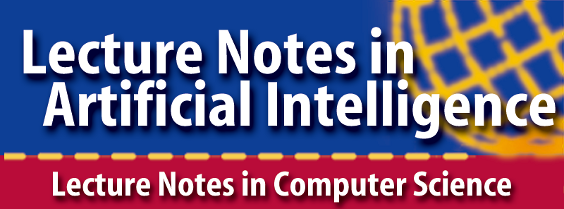
The proceedings of MIWAI2021 will be published by Springer in LNAI, a topical subseries of LNCS focusing on artificial intelligence (Indexed in the ISI Conference Proceedings Citation Index, Scopus, EI Engineering Index, Google Scholar, Springerlink, DBLP, etc.).
Previous MIWAI's proceedings in LNAI book series can be found here. 









REGISTRATION
Author of the acceopted papers:
The authors of each accepted paper must upload the camera ready version of the paper to MIWAI 2021’s submission website via Easychair by April 30, 2021. The camera ready version includes:
- The final pdf file of the paper which has accommodated the reviewers’ comments.
- A zip file of all the source files (LaTeX files with all the associated style files, special fonts and eps or bib files, or Word or rtf files).
- The pdf file of the signed copyright form.
- The authors of each accepted papers must send us a signed copyright form. One author may sign on behalf of all of the authors of a particular paper. The copyright form must be present and correct. In first two fields of the form, insert the following information:
Title of the Book or Conference Name: Proceedings of the 14th Multi- disciplinary International Conference on Artificial Intelligence
Volume Editor(s):
- Phatthanaphong Chomphuwiset
- Pornntiwa Pawara
- Junmo Kim
The copyright form can be accessed here.
Registration Fees
Each accepted paper should have registration fee paid by at least one of the authors by May 8, 2021 in order to include the paper in the LNAI. The fee details are given in the table below.
Important Note: At least one author of each accepted paper must register for the conference in order for their paper to be included in the LNAI. Additional (co)authors of that paper may also register if they wish to.
Each paper must be accompanied by at least one individual mandatory registration. The SINGLE registration includes:
- Attendance at all MIWAI 2021 sessions
- Conference proceedings published by Springer (Online access)
Note: The conference organizers WILL NOT be responsible for missing payments and/or any other problems related to the payments. The registration fee is non-refundable.
(Fee in USD) |
Normal |
||||
Standard Fee |
250 |
||||
Additional Papers |
100 |
||||
Participants (no paper) |
50 |
||||
Registration fee payment for authors and non-authors:
Here are the details of registration Fee payment process.
1) The registration fee must be deposited to the following account:
Items |
Details |
Beneficiary A/C number |
630-0-013429 |
Beneficiary Name: |
Rapeeporn Chamchong |
Bank Name |
Bangkok Bank |
Branch |
The Front Mahasarakham University |
SWIFT Address |
BKKBTHBK |
2) Submit a camera ready version and register to the conference click here
IMPORTANT NOTE*
Registration is a precondition for inclusion of the paper in the conference proceedings.
CONFERENCE PROCEEDINGS
The conference proceedings can be accessed here
Multi-disciplinary Trends in Artificial Intelligence
14th International Conference, MIWAI 2021, Virtual Event, July 2–3, 2021, Proceedings
Contact Host Conference.
Phatthanaphong Chomphuwiset: phatthanaphong.c@msu.ac.th
Pornntiwa Pawara: pornntiwa.p@msu.ac.th
Junmo Kim: junmo.kim@kaist.ac.kr
